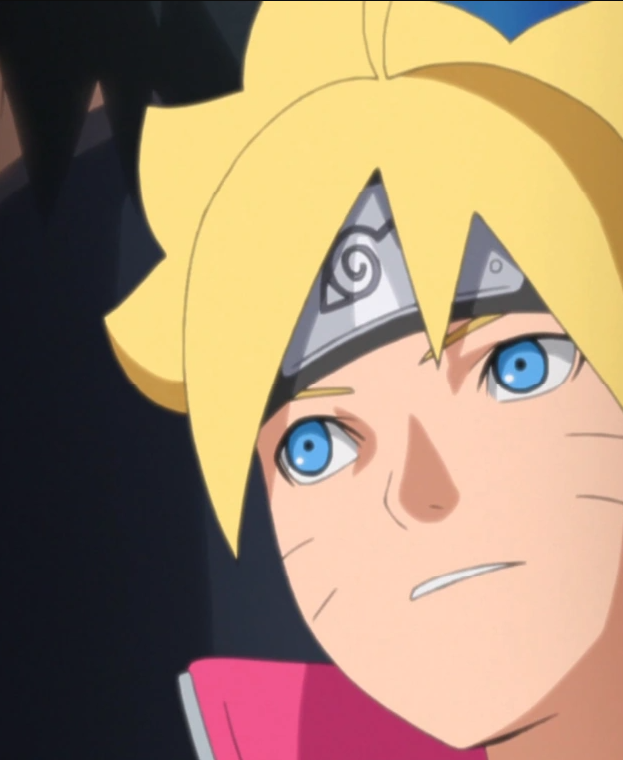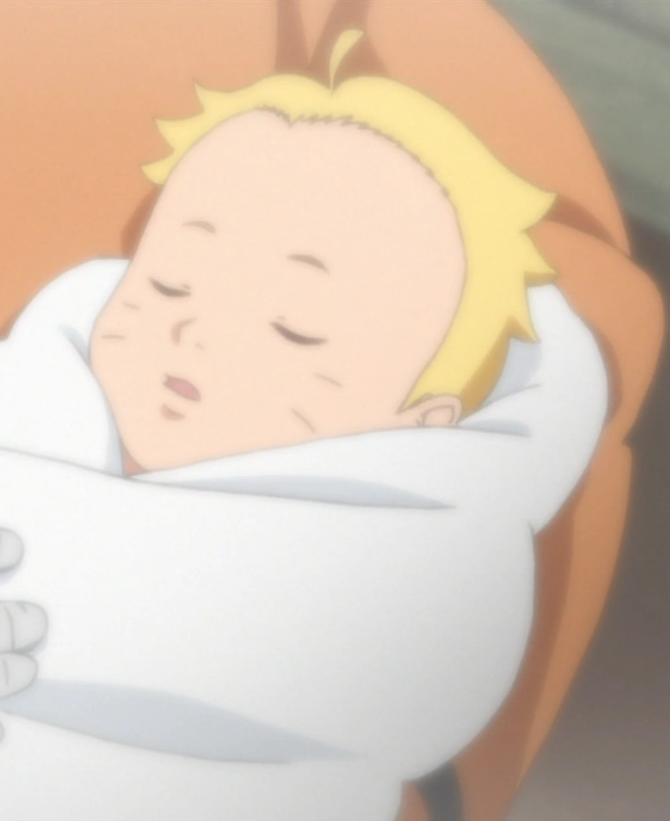
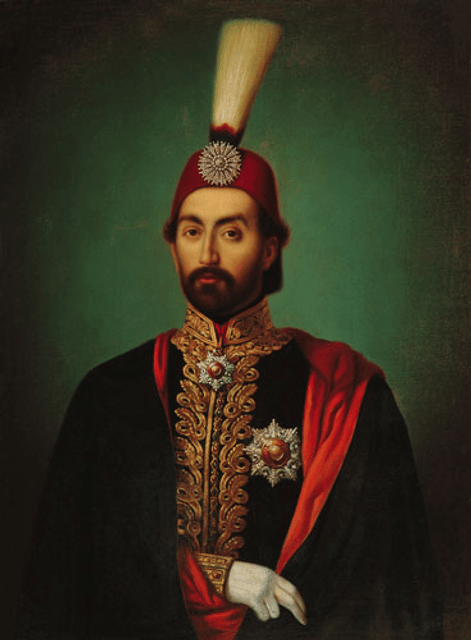
Boruto Uzumaki
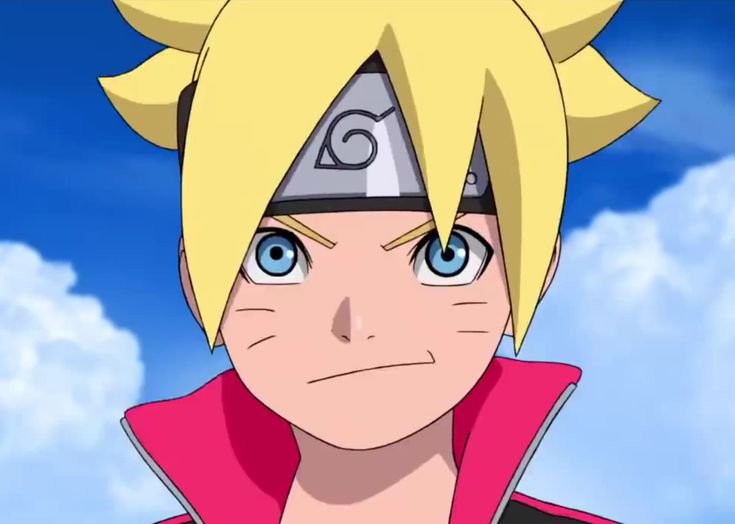
(うずまきボルト, Uzumaki Boruto) |
|
|---|---|
| Debut | |
| Manga | Naruto Chapter #700 |
| Anime | Naruto Shippūden Episode #500 |
| Novel | The Last: Naruto the Movie |
| Movie | The Last: Naruto the Movie, |
| Game | Naruto Shippūden: Ultimate Ninja Storm 4 |
| OVA |
The Day Naruto Became Hokage (OVA)
|
| Appears in | Anime Manga Game Movie Novel |
| Birthdate | March 27 |
|
|
|
| Species | Celestial Being |
| Age | New Era: 12–16 |
| Height | New Era: 145 cm–163 cm |
| Kekkei Genkai | Jōgan |
Boruto UzumakiBoruto Uzumaki (Japanese: うずまきボルト, Uzumaki Boruto) is a former shinobi of Konohagakure and a member of the Uzumaki clan, with lineage tracing back to the Hyūga clan through his mother, Hinata Hyūga. In his early years, Boruto struggled with feelings of neglect due to his father, Naruto Uzumaki’s, commitments as the Seventh Hokage. This led to resentment and a desire to pursue his own path, separate from his father’s legacy. Over time, however, Boruto came to understand and respect the responsibilities Naruto held, though he remained determined to forge his own identity as a shinobi, aspiring to follow the path of his mentor, Sasuke Uchiha, rather than becoming Hokage. Boruto’s life underwent a dramatic change when his adoptive brother, Kawaki, manipulated events to make Boruto appear responsible for the death of his parents. Utilizing an ability to alter memories, Kawaki turned the village against Boruto, branding him a traitor and a missing-nin. Forced into exile, Boruto lost the trust of those he once held dear. Despite these challenges, he remains steadfast in his conviction to prove his innocence and stay true to his sense of self.
| Abdulmejid I عبد المجيد اول |
|||||
|---|---|---|---|---|---|
| *Ottoman Caliph Amir al-Mu’minin Sultan of the Ottoman Empire Kayser-i Rûm Custodian of the Two Holy Mosques Knight of the Garter Order of the Tower and Sword* |
|||||
| 31st Ottoman Sultan (Emperor) | |||||
| Reign | 2 July 1839 – 25 June 1861 | ||||
| Predecessor | Mahmud II | ||||
| Successor | Abdülaziz | ||||
| Born | 25 April 1823[1][2] Constantinople,Ottoman Empire |
||||
| Died | 25 June 1861(aged 38) Constantinople, Ottoman Empire |
||||
| Burial |
Yavuz Selim Mosque, Fatih, Istanbul
|
||||
| Consorts | Servetseza Kadın Tirimüjgan Kadın Düzdidil Kadın Şevkefza Kadın Zeynifelek Hanım Gülcemal Kadın Verdicenan Kadın Perestu Kadın Nükhetsezâ Hanım Nesrin Hanım Mahitab Kadın Ceylanyar Hanım Bezmiara Kadın Nergizev Hanım Navekmisal Hanım Nalandil Hanım Şayeste Hanım Serfiraz Hanım Gülüstü Hanım |
||||
| Issue | see below | ||||
|
|||||
| Dynasty | Ottoman | ||||
| Father | Mahmud II | ||||
| Mother | Bezmiâlem Sultan | ||||
| Religion | Sunni Islam | ||||
| Tughra |  |
||||
| Full name | |||||
| Abdul Mecid bin Mahmud | |||||
Background
Boruto Uzumaki is the eldest child of Naruto Uzumaki and Hinata Hyūga, born four years following the conclusion of the Fourth Shinobi World War. Two years after his birth, he became an older brother to his younger sister, Himawari Uzumaki. Raised in a nurturing environment, Boruto grew up observing the strong bonds between his parents and their close-knit circle of friends, many of whom were fellow shinobi. This upbringing allowed him to naturally form friendships with the children of his parents’ companions, integrating him into the emerging generation of shinobi within Konohagakure.
During the day of Naruto Uzumaki’s inauguration as the Seventh Hokage, a minor conflict arose between Boruto Uzumaki and his younger sister, Himawari. Himawari insisted on bringing her panda toy to the ceremony, which Boruto tried to prevent, concerned that he might end up carrying it. The resulting tug-of-war led to the toy’s head being torn off, triggering a strong reaction from Himawari. In her anger, she awakened her Byakugan for the first time. Despite Boruto’s attempts to apologize, Himawari lashed out in rage. Sensing the situation, Naruto intervened to protect his son but was unexpectedly struck at one of his chakra points, rendering him unconscious. Shocked and frightened by his sister’s sudden strength, Boruto attempted to hide from her. However, Himawari quickly discovered his hiding spot in a closet, leading to Boruto’s vow to never provoke her again.
Personality
Boruto Uzumaki exhibits many traits similar to his father, Naruto Uzumaki, such as being loud, energetic, and stubborn. He even has a unique verbal tic, “dattebasa” (だってばさ), echoing Naruto’s “dattebayo” and his paternal grandmother’s “dattebane” (だってばね). Despite these similarities, Boruto demonstrates a contrasting personality to Naruto’s at the same age. He is more refined, resourceful, and possesses a deeper understanding of the world around him. Unlike Naruto, who was known for his bluntness and loud declarations of emotion, Boruto often expresses his thoughts with sarcasm and subtlety, showcasing his more mature outlook. In addition, while Boruto has a laid-back demeanor, he is also diligent in his pursuits. His upbringing, surrounded by his family and friends, provided him with a sense of stability that Naruto lacked in his childhood. This supportive environment, combined with Boruto’s natural prodigious abilities, contributed to his skills developing more effortlessly than his father’s.
Boruto Uzumaki initially exhibited a strong sense of pride in his abilities, often boasting and placing great confidence in his skills. This arrogance caused him to undervalue teamwork, believing he could manage challenges single-handedly. His drive for success led him to seek shortcuts, such as using cheat programs in video games or employing the Kote—a scientific ninja tool—to imitate advanced techniques during the Chūnin Exams. He even resorted to using the Kote to gain an unfair advantage over opponents, hoping to impress Sasuke Uchiha and secure his mentorship. However, Boruto’s perspective shifted when he recognized the selfishness and unethical nature of relying on such tools. This realization sparked a newfound respect for hard work and perseverance. He began to reject the use of advanced tools as shortcuts, firmly believing that genuine strength should be derived from natural skill and effort. His views evolved further after encountering Ao, who showed him that tools are not inherently good or bad, but rather neutral instruments whose morality depends on their use. This experience also led Boruto to appreciate Katasuke Tōno’s work with scientific tools, acknowledging their potential to benefit even the smallest of creatures.
Despite his occasional arrogance, Boruto Uzumaki does not belittle others and demonstrates deep loyalty to his friends. He has shown a strong protective instinct, particularly when coming to the aid of Denki during instances of physical harm. This loyalty highlights his caring nature, as he avoids unnecessary confrontation and refrains from name-calling. Instead, Boruto chooses to ignore negativity directed at him unless it involves harm to his friends, reflecting his level of maturity. Boruto also displays a strong sense of compassion, particularly when a friend turns into an adversary. In such cases, he is determined to guide them back from a dark path. His deep love for his family is evident in his fierce protectiveness of his mother, Hinata, and his sister, Himawari. He becomes indignant if either is hurt, whether emotionally or physically. Despite his affection for Himawari, Boruto harbors a fear of upsetting her, a sentiment that stems from their past conflicts, leading him to vow never to provoke her again.
Both Naruto Uzumaki and Sasuke Uchiha have remarked that Boruto Uzumaki bears similarities to each of them in their youth. He exhibits a blend of characteristics from both shinobi, combining Naruto’s mischievousness with Sasuke’s ambition, including a willingness to use shortcuts to achieve his goals. However, Naruto has also observed that Boruto is “something entirely different” from either of them, indicating his unique qualities. Boruto’s relationship with Sarada Uchiha, Sasuke’s daughter, is complex and often marked by friction. While Sarada holds the role of Hokage in high regard and aspires to attain it, Boruto initially displays disdain for the position, preferring to forge his own path. Despite their differences, Boruto genuinely cares for Sarada and her ambitions. This care is evident during the Chūnin Exams, where he expressed a desire to win not just for personal success but also to support Sarada’s progress toward her dream of becoming Hokage.
Boruto Uzumaki’s unwavering loyalty to his friends has made him a central figure within his social circle, often serving as the glue that holds them together. His influence is widely recognized by those around him, who see him as a foundational support for their group. Boruto also upholds a strong moral code, particularly when it comes to the value of others’ lives. This moral stance is evident in his firm opposition to the idea of sacrificing others for his own survival. When Kawaki proposed that Boruto implant the Kāma onto someone else to create a new vessel, Boruto rejected the suggestion outright. He maintained this stance even when Kawaki suggested using Code, an enemy and devoted follower of Isshiki Ōtsutsuki, demonstrating Boruto’s commitment to his principles regardless of the circumstances.[15]
Boruto Uzumaki has a deep love for his father and cherishes the moments they spend together; however, their relationship became strained after Naruto assumed the role of the Seventh Hokage. With the significant responsibilities that come with being Hokage, Naruto often finds himself absent from family life, leaving Boruto feeling neglected. This absence led to resentment, causing Boruto to view the Hokage title in a negative light, believing it to be a role that deprives people of their loved ones. He even went so far as to suggest that the position is suitable only for those without attachments, reflecting his awareness of Naruto’s own upbringing as an orphan. Over time, Boruto begins to gain a deeper understanding of his father’s life and the complexities of his duties. Witnessing firsthand the challenges and demands of being Hokage, he gradually comes to forgive Naruto for his frequent absence. This insight prompts Boruto to move away from seeking easy solutions and instead develop an appreciation for the hard work and dedication required to fulfill one’s responsibilities.
Initially, Boruto Uzumaki sought to learn about his father’s past primarily as a means to surpass him. However, this pursuit gradually turned into a genuine curiosity about Naruto’s history, particularly how he rose to become one of the strongest shinobi despite a challenging and seemingly hopeless upbringing. Boruto’s perspective on his father changed significantly after their battle against Momoshiki Ōtsutsuki. Witnessing Naruto’s immense strength and selflessness in protecting the village gave Boruto a newfound admiration for his father. This revelation helped Boruto and Naruto reconcile their differences, allowing them to rebuild a healthier relationship. Naruto made efforts to be more present in his son’s life, while Boruto ceased his constant demands for his father’s time. Although Boruto let go of his anger towards Naruto and gained respect for the Hokage title, he remained firm in his decision not to follow in his father’s footsteps to become Hokage. Instead, he chose to forge his own path, aspiring to support the Hokage, similar to his mentor, Sasuke Uchiha. Boruto’s resilience has also been a defining aspect of his growth. He confronts surreal challenges with optimism and even shows empathy toward those who have wronged him. For example, despite the ordeal with Ada and Kawaki, who manipulated the memories of those around him, Boruto continues to approach his circumstances with a steadfast determination. Even under the demoralizing attempts of Momoshiki, he remains resolute in pursuing his chosen path.
Boruto Uzumaki has a notable fondness for burgers, often going out of his way to obtain limited edition varieties, such as green chili hamburgers, especially on their final day of sale. He is also known to carry burger discount coupons, highlighting his enthusiasm for his favorite fast food. In addition to burgers, his preferred dish is a yakisoba bun. Boruto has an unusually high tolerance for spicy foods, which distinguishes him from his friends, who generally struggle with spiciness. Apart from his love of food, Boruto enjoys drawing, despite his lack of significant skill in the area. His enthusiasm for art has led Sai to recognize his potential in utilizing the Super Beast Scroll technique. Additionally, Boruto is influenced by the popular movie character Kagemasa. He admires the hero’s attitude and even wears a replica of Kagemasa’s visor, mirroring his admiration and emulating the character’s persona.[9]
During his three-year absence from Konoha, Boruto Uzumaki experienced substantial personal growth. His personality evolved, becoming more calm, nonchalant, and decisive. This newfound maturity brought with it a heightened level of focus, as he learned to maintain his composure regardless of external pressures or distractions. Throughout the numerous hardships he faced during this time, Boruto remained steadfast in his resolve to resolve conflicts peacefully. His primary objective centered on reconciling with Kawaki, demonstrating his commitment to addressing issues through understanding and compromise rather than hostility. This period of self-growth further solidified his dedication to achieving harmony in the face of adversity.
Appearance
Boruto Uzumaki is a fair-skinned young man of a lean, well-built frame and relatively short stature. He has spiky blond hair and blue eyes, complemented by two whisker markings on each cheek, a distinctive trait inherited from his father, Naruto. His hairstyle resembles a leaf, with an ahoge (アホ毛, meaning “foolish hair”) that serves as the “stem.” According to Sarada Uchiha, Boruto’s eyes are even bluer than Naruto’s. At the age of five, Boruto wore a black tracksuit featuring a red fire symbol on the left side of the chest and a bolt-like symbol on the back, with dark pink stripes along the sides of his pants. During his early days at the Academy, his outfit was modified to include dark pink stripes on the jacket, which he left unzipped over a white T-shirt. He also wore a bolt tied to a string around his neck. As a genin, Boruto transitioned to a longer jacket and added a belt, while retaining the core elements of his outfit. The new jacket featured a dark pink Uzumaki Clan symbol on the back, and he began wearing a forehead protector. In the manga, he also sported small black rubber bands around his left ankle and wrist. On one occasion, he briefly wore his father’s original orange jacket and Sasuke’s scratched forehead protector. After being marked by Momoshiki, Boruto acquired the Kāma, a black diamond-shaped seal on his right palm. While in the past, he wore a red vest, grey long sleeves, and long shorts as a disguise. In the anime, he began wearing a fingerless glove on his right hand to conceal the Kāma, following Sasuke’s instructions. After the defeat of Isshiki Ōtsutsuki, he resumed wearing Sasuke’s forehead protector and reverted to his Academy student attire. After the reconstruction of his chest cavity by Momoshiki’s remaining data, Boruto developed a large scar resembling a geometric Kāma pattern on his chest. During a confrontation with Kawaki, his right eye was slashed, leaving a scar that extends diagonally from above his eyebrow to his cheek, intersecting his top whisker marking. This injury resulted in blindness in that eye and damaged Sasuke’s forehead protector. Three years after leaving Konoha, Boruto’s appearance changed significantly. He grew taller, with more unruly hair, and adopted a new outfit: a half-buttoned white shirt exposing his chest, black pants, shin-high black sandals, a black jacket with purple-lined sleeves, and a black cloak with purple on the inside. He accessorized with two beige belts, silver studs, and a silver chain. The jacket featured lapel flaps, sleeves folded to his elbows, and pins on his lapels—one shaped like the Konoha symbol. He wore a beige bracelet on his left arm and a fingerless glove. After his master was imprisoned, he began carrying Sasuke’s sword. By age 16, Boruto’s outfit once again echoed his genin days. This ensemble included a beige belt with a loose flap, black pants reaching just above his ankles with red lining, regular shinobi sandals, and thicker red lining around the jacket sleeves. He continued wearing a black glove on his left hand, a black cloak, the Uzumaki symbol necklace, and Sasuke’s forehead protector.
Abilities
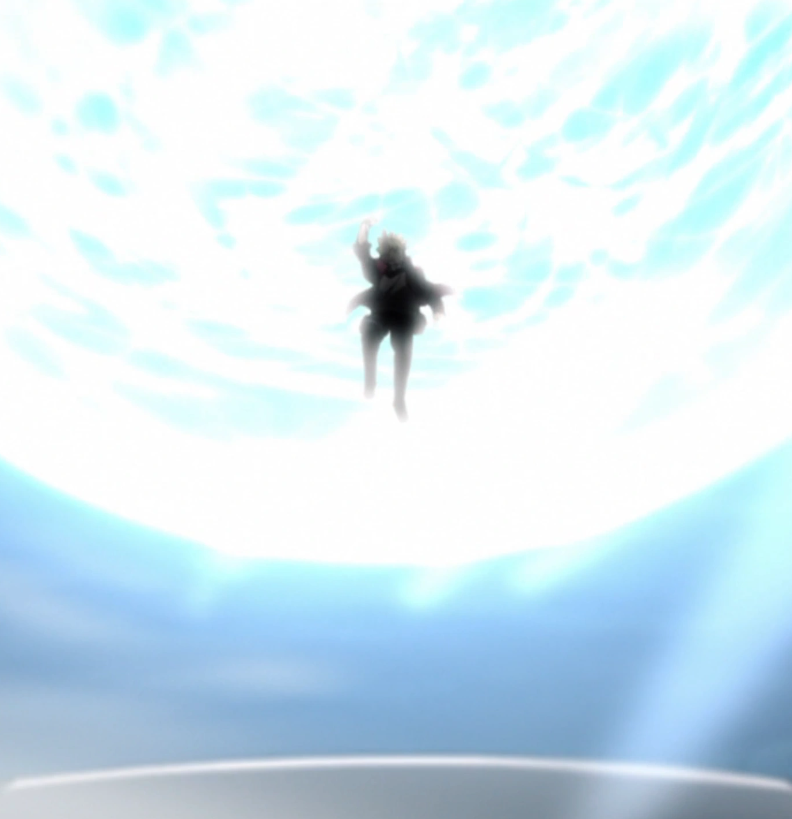
Boruto’s Kāma enlarging his Rasengan.
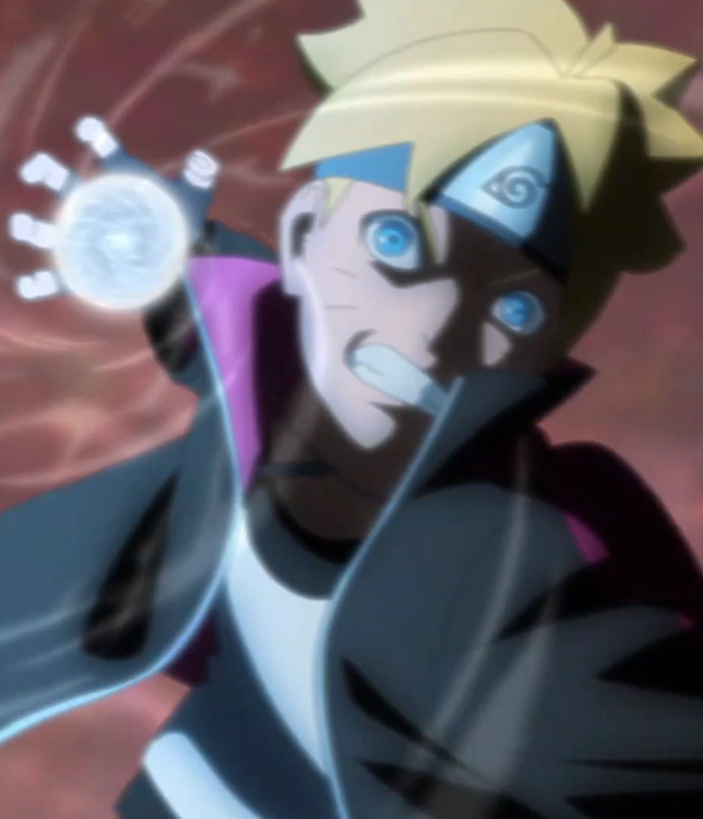
Boruto performing his Rasengan.
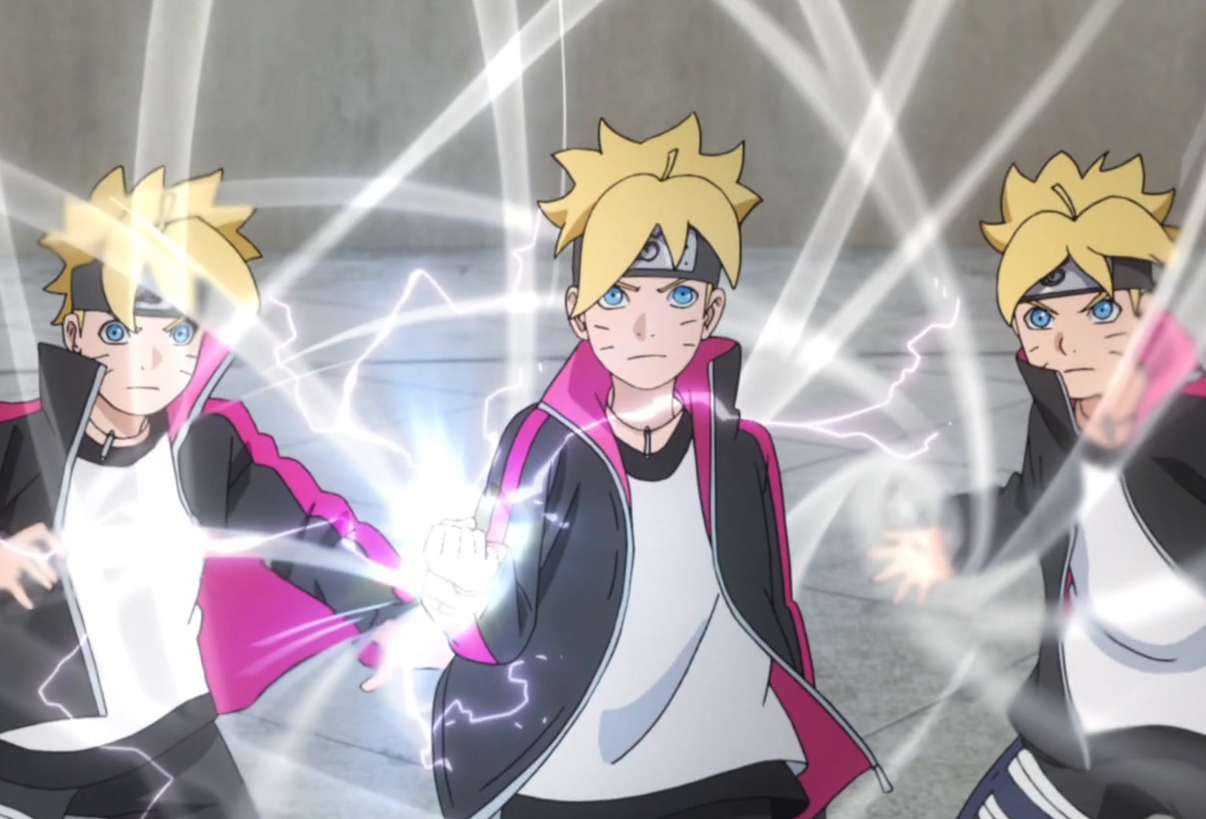
Boruto simultaneously using two nature transformations.
Boruto Uzumaki is recognized as a prodigious talent, stemming from his powerful Uzumaki and Hyūga bloodlines. His inherited genius, combined with the unpredictability of his father, Naruto, allows him to achieve remarkable feats in short periods. During his Genin Exams, Boruto scored at the top of his class, exhibiting skills beyond his peers, and demonstrating chūnin-level abilities at a young age. His combat prowess has been crucial in overcoming formidable adversaries, including Momoshiki and Urashiki Ōtsutsuki, as well as various members of the Kara organization. Because of his exceptional potential, he is viewed as a significant threat by the Ōtsutsuki Clan. Boruto’s abilities expanded significantly during his three-year absence from Konoha. Under Sasuke’s guidance, he mastered all the skills and techniques Sasuke could teach him within the first year. He then trained with Koji Kashin, eventually developing the capability to overpower Code, defeat Mitsuki, and subdue Kawaki. His strength even poses a threat to the sentient God Trees, having defeated one of their members, Hidari. As a member of the Uzumaki clan, Boruto inherited a robust life-force and substantial chakra reserves, allowing him to create up to four shadow clones even after significant chakra depletion. In the anime, Boruto’s physical strength and resilience enable him to handle natural energy, showing potential for senjutsu after successfully passing the trials of Ryūchi Cave. Additionally, as a direct descendant of the Hyūga clan, he possesses the latent ability to awaken the Byakugan. Boruto also carries significant Ōtsutsuki power and, as the child of a Byakugan wielder, can communicate with deceased Ōtsutsuki spirits. His advanced chakra control is evident in his rapid mastery of complex techniques. For example, he learned the Rasengan in a few days with one hand and further enhanced the technique instinctively. After adapting to his Ōtsutsuki state, Boruto gained the ability to naturally conceal his chakra signature from others. Even before entering the Academy, he demonstrated exceptional speed and taijutsu proficiency, able to maneuver behind opponents unnoticed and deliver coordinated attacks with all limbs. Although initially unable to target tenketsu without the Byakugan, his potential in the Gentle Fist technique improved with the manifestation of his Jōgan. Boruto also possesses considerable physical strength, capable of striking the ground forcefully and lifting individuals much larger than himself. Achieving complete Ōtsutsuki status further enhanced his physical abilities. In his base form, he briefly blocked an attack from a Kāma-enhanced Kawaki and later displayed agility by evading strikes from a Sage Mode-empowered Mitsuki. From a young age, Boruto could create shadow clones, skillfully coordinating with them for advanced maneuvers. Although he initially needed a line of sight and a certain distance to use his clones, and could only create up to three at a time, his control improved over time, eventually allowing him to summon dozens of clones regardless of positioning. In the anime, Boruto formed a temporary contract with Garaga, enabling him to summon the giant snake, and developed a bond with snakes, utilizing their aid in combat. His proficiency extends to Cooperation Ninjutsu and Fūinjutsu, using these techniques to restrain opponents and increase effectiveness when collaborating with allies. Under Konohamaru’s guidance, Boruto learned the Rasengan, initially forming a small sphere before mastering its full size with one hand. In the anime, he progressed to using the Rasengan as a projectile and compressing it for increased power. With greater control over Momoshiki’s power, Boruto mastered the Ultra-Big Ball Rasengan. During his three-year training period away from Konoha, he refined his Rasengan further, leveraging the Earth’s rotation to produce effects ranging from disorientation to one-hit knockouts. Although not as adept as his grandfather, Boruto learned Space-Time Ninjutsu, including the Flying Thunder God Technique, enabling him to teleport across dimensions. Bukijutsu Boruto has also shown considerable skill in weaponry. As an Academy student, he displayed proficiency in kenjutsu, wielding half of Hiramekarei and later utilizing a prototype Chakra Blade. During his three-year absence, he mastered Uchiha Style Kenjutsu, allowing him to efficiently dispatch Code’s Claw Grime. His training with Sasuke enhanced his shurikenjutsu abilities, enabling him to alter weapon trajectories mid-flight and infuse his shuriken with Lightning Release.
Intelligence
-
Boruto Uzumaki (Japanese: うずまきボルト, Uzumaki Boruto) is a former shinobi of Konohagakure’s Uzumaki clan and a direct descendant of the Hyūga clan through his mother, Hinata. Initially resentful of his father, Naruto Uzumaki, for his absence due to his duties as Hokage, Boruto gradually came to respect his father’s role. Despite this, he vowed to forge his own path as a shinobi, taking inspiration from his mentor, Sasuke Uchiha. His life took a drastic turn when he was forced to defect from the village after his adoptive brother, Kawaki, framed him for the death of his parents by altering the memories of everyone in the village. Although he lost everything, Boruto remains resolute in proving his innocence and asserting his identity. Early Life and Background Boruto is the first child of Naruto and Hinata Uzumaki, born four years after the end of the Fourth Shinobi World War. He has a younger sister, Himawari, who was born two years later. Growing up, Boruto was surrounded by the children of his parents’ friends, forming close bonds within the new generation of Konoha shinobi. An incident during Naruto’s inauguration as the Seventh Hokage marked a significant moment in Boruto’s early life. While attempting to prevent Himawari from bringing her panda toy to the ceremony, their struggle led to Himawari awakening her Byakugan in anger. Shocked by her sudden display of power, Boruto vowed never to upset his sister again. Personality and Traits Energetic and stubborn, Boruto shares many characteristics with his father, including a verbal tic reminiscent of Naruto’s. However, Boruto is more refined, sarcastic, and less vocal about his emotions. While he possesses natural talent and grew up with the support of his family, he initially valued personal achievement over teamwork, often resorting to shortcuts to succeed. Over time, his experiences taught him the importance of hard work, the role of tools, and the value of collaborating with others. Despite his initial arrogance, Boruto remains loyal to his friends and deeply cares for his family, often willing to go to great lengths to protect them. He shares a complex relationship with Sarada Uchiha, marked by rivalry and mutual respect, despite their differing views on the Hokage role. Abilities Chakra and Physical Prowess Boruto inherits the powerful life-force of the Uzumaki clan, granting him large chakra reserves and enabling him to create multiple shadow clones. His physical abilities are notable, including his considerable strength and taijutsu skills. As a descendant of the Hyūga clan, he has the latent potential to awaken the Byakugan and has inherited Ōtsutsuki powers. His advanced chakra control allows him to master techniques such as the Rasengan and to conceal his chakra signature effectively. Ninjutsu and Techniques Boruto exhibited impressive speed and taijutsu skills even before entering the Academy. Under Konohamaru’s guidance, he learned the Rasengan and later advanced to more complex techniques, including Space-Time Ninjutsu and the Ultra-Big Ball Rasengan. He also displays proficiency in bukijutsu, particularly in kenjutsu and shurikenjutsu. Strategic Mind Boruto possesses a strategic mindset, excelling at reading situations and adapting his strategies during combat. He uses the Shadow Clone Technique to execute complex maneuvers and exploit his opponents’ weaknesses. His strategic acumen has allowed him to outmaneuver formidable adversaries, such as Momoshiki Ōtsutsuki and Ao. Appearance Boruto is a fair-skinned boy with a lean, athletic build. He has spiky blond hair, blue eyes, and whisker-like markings on his cheeks, bearing a strong resemblance to his father. His appearance has evolved from his early days in a black tracksuit to his current attire, which includes a black jacket with purple accents and a cloak. Over time, Boruto has acquired various scars and markings from his battles, including the Kāma seal on his right palm and a scar on his face from a confrontation with Kawaki. Development During his three-year absence from Konoha, Boruto experienced significant personal growth. He matured into a calm, nonchalant, and decisive individual, focusing on peaceful conflict resolution. His return to the village marked a new phase in his life, where he reconciled with his father and continued to develop his skills, determined to pursue his own path as a shinobi.
